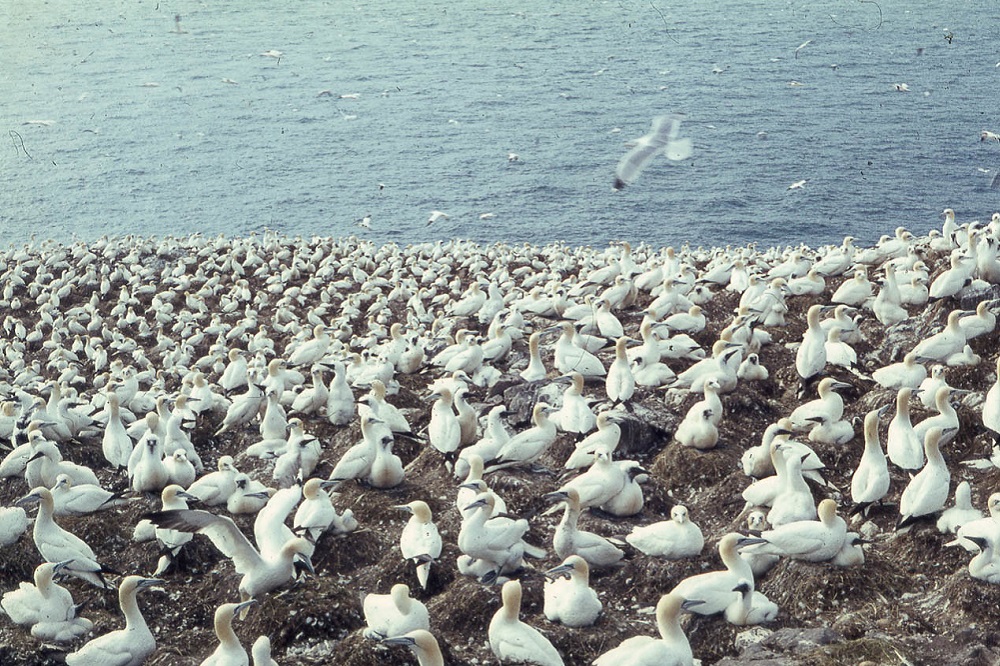New measure introduced as bird flu is detected in gannets on Grassholm

The Welsh Government has set out new guidance to land managers, the public and conservation groups to curb the impact of bird flu in wild birds.
Natural Resources Wales (NRW) has also suspended all seabird ringing and seabird nest recording after Avian influenza was detected on Anglesey, in Ceredigion and in gannets on Grassholm off the Pembrokeshire coast.
Highly Pathogenic Avian Influenza (HPAI) has been found at scores of poultry farms and commercial premises across the UK in the past year, while the disease has also ripped through breeding colonies of seabirds, killing thousands in some sites.
There have been mass die offs of great skuas and gannets across Scottish colonies and the east coast of the UK has recorded large mortalities in various tern colonies and other species.
Wales has many internationally and nationally important seabird colonies, including the largest colony of Manx shearwaters in the world on Skomer and Skokholm, and the gannet colony on Grassholm, which is the third largest in the world.
Welsh colonies are not currently affected with the mass die offs seen elsewhere.
The new guidance includes advice for landowners on how to make natural areas safe for the public, such as signs to warn them of the risks, and having contingency plans in place to allow them to respond quickly to outbreaks.
It also sets out the government’s approach to monitoring and better understanding the spread of avian influenza in wild bird populations.
Mass mortalities
“The likelihood that avian flu could cause similar mass mortalities in seabirds in Wales, as seen in Scotland and England, unfortunately, remains heightened,” Climate Change Minister Julie James said.
“There is also the probability that it could cause mass mortalities in wildfowl and wader populations in our internationally important estuaries come autumn and winter.
“Recognising the risks to Welsh seabird colonies, Welsh Government, NRW and Public Health Wales Officials are working closely with the other UK Governments, APHA, and critical stakeholders such as Royal Society for the Protection of Birds, British Trust for Ornithology and the Royal Society for the Protection of Animals, to share knowledge and expertise in response to the threat that HPAI presents to our seabird populations.
“The migratory nature and potential range of our seabirds makes collaboration and effective monitoring critical to our ability to track and understand the spread of the virus.”
Unprecedented
The current outbreak of H5N1 bird flu, which began in October last year, is being described by officials as “unprecedented in its scale and the breadth of species affected”.
It is the longest and largest such outbreak on record in the UK, continuing beyond the normal winter period for the disease and hitting wild birds and breeding colonies of seabirds not normally affected.
Monitoring by the Animal and Health Plant Agency in the outbreak has shown more than 1,500 found dead wild birds testing positive for the disease, recovered from more than 360 locations and including 61 species.
Bird flu has been detected in breeding seabirds which are already considered to be struggling, including roseate terns, puffins and herring gulls, which are all “red listed” over conservation concerns.
Support our Nation today
For the price of a cup of coffee a month you can help us create an independent, not-for-profit, national news service for the people of Wales, by the people of Wales.




